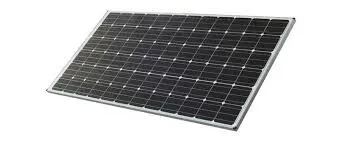power inverter
Understanding Power Inverters The Backbone of Modern Energy Solutions
In the era of renewable energy and portable power solutions, power inverters play a pivotal role in transforming how we harness and utilize electrical energy. These devices, often overlooked in everyday discussions about energy efficiency, are essential for converting direct current (DC) from batteries or solar panels into alternating current (AC), which powers most household and industrial appliances. Understanding their function, types, and applications can significantly enhance our approach to energy consumption and management.
What is a Power Inverter?
At its core, a power inverter is an electronic device that changes DC electricity into AC electricity. In simple terms, when you plug an appliance into a standard wall outlet, it uses AC power. However, many renewable energy sources, particularly solar panels, generate DC power. This is where inverters come into play. Their primary function is to make DC electricity usable for everyday devices and systems that rely on AC.
Types of Power Inverters
Power inverters come in various forms, each tailored to specific applications
1. Modified Sine Wave Inverters These are the most basic type of inverters. They convert DC to AC by creating a waveform that approximates a sine wave. While they are cheaper and suitable for running resistive loads like light bulbs, their output may not be ideal for more sensitive electronics, as they can produce a noisy signal.
2. Pure Sine Wave Inverters As the name suggests, these inverters provide a smooth, consistent sine wave output. They are more expensive than modified sine wave inverters but are essential for running sensitive equipment like computers, medical devices, and high-end audio systems. The clean output minimizes the risk of damage and improves the performance of electrical devices.
3. Grid-Tie Inverters These inverters are designed to work in conjunction with the electrical grid. They allow homeowners with solar panels to sell excess energy back to the grid, thus maximizing energy efficiency and financial returns. Grid-tie inverters must comply with specific regulations and standards set by utility companies.
4. Off-Grid Inverters For those who live in remote areas or wish to be independent from the grid, off-grid inverters are a perfect solution. They are often paired with battery storage systems to provide a reliable power source. These inverters can manage power from renewable energy sources and batteries, making them adaptable for various scenarios.
power inverter

Applications of Power Inverters
The applications of power inverters are vast and can be found in numerous sectors, including
- Residential Use Homeowners utilize power inverters in solar energy systems to convert solar-generated DC energy into usable AC power. This setup not only reduces energy bills but also minimizes carbon footprints.
- Automotive Industry Inverters are commonly used in vehicles, especially in electric and hybrid cars, to convert the DC from the battery into AC to power electric motors.
- Portable Power For outdoor enthusiasts, portable power inverters enable the use of electronic devices like laptops, chargers, and small kitchen appliances while camping or on road trips. These compact inverters are critical for off-grid adventures.
- Uninterruptible Power Supplies (UPS) In commercial settings, inverters are integral to UPS systems that provide backup power during outages, ensuring critical systems continue to operate without interruption.
Future of Power Inverters
With the ongoing advancements in energy technology, the future of power inverters looks promising. Innovations such as smarter inverters equipped with communication capabilities will allow for better integration with smart homes and grid systems. Additionally, as the demand for renewable energy sources increases, the role of inverters will continue to expand, driving improvements in efficiency and sustainability.
Conclusion
Power inverters are a fundamental aspect of modern energy solutions, enabling the widespread adoption of renewable energy and efficient energy management systems. As technology progresses, these devices will become even more essential, powering our homes, vehicles, and lives in ways we are only beginning to explore. By understanding the importance and functionality of power inverters, we can better appreciate the intersection of renewable energy and everyday convenience.
-
Navigating Off Grid Solar Inverter: From Use Cases to Trusted PartnersNewsAug.05,2025
-
Solar Edge String Inverter: A Wholesaler’s Guide to Inverter Technology SelectionNewsAug.05,2025
-
Microinverters: Revolutionizing Solar Energy UseNewsAug.05,2025
-
Future of Monocrystalline Solar Panel Efficiency: Latest Technological AdvancesNewsAug.05,2025
-
Solar Panels for House: A Complete Guide to Residential Solar EnergyNewsAug.05,2025
-
Panel Bifacial Performance in Snow and Low-Light ConditionsNewsAug.05,2025







